Russia has accelerated its destruction of Ukraine’s front-line cities in 2024 to a scale previously unseen in the war using glide bombs and an expanding network of airstrips.
That’s according to analysis of drone footage, satellite imagery, Ukrainian documents and Russian photos.
The results can be seen in the intensity of recent Russian attacks. It took a year for Russia to obliterate Bakhmut, where the bombs were first used. That was followed by destruction in Avdiivka that took months. Then, only weeks were needed to do the same in Vovchansk and Chasiv Yar, according to images analyzed by AP that showed the smoldering ruins of both cities.
Now, Russia is putting the finishing touches on yet another airstrip less than 100 kilometers (60 miles) from Ukraine and launching the bombs routinely from multiple bases just inside Russian borders, according to the AP analysis of satellite pictures and photos from a Russian aviation Telegram channel.
The first shock wave shattered aisles stacked almost to the ceiling with home improvement products. The next Russian bomb streaked down like a comet seconds later, unleashing flames that left the megastore an ashen shell.
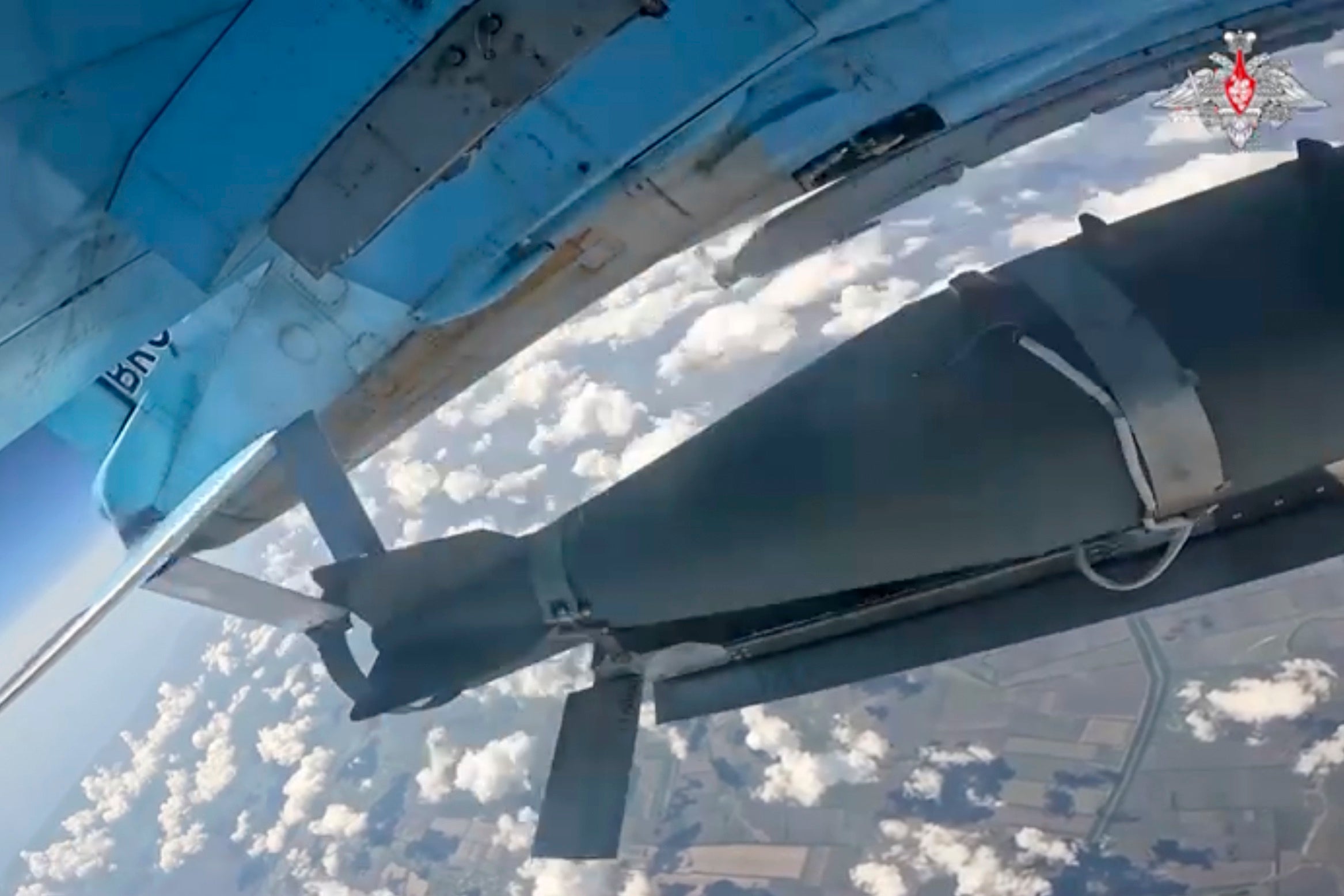
A third bomb failed to detonate when it landed behind the Epicenter shopping complex in Kharkiv. Investigators hope it will help them trace the supply chain for the latest generation of retrofitted Russian “glide bombs” that are laying waste to eastern Ukraine. The Soviet-era bombs are adapted on the cheap with imported electronics that allow distant Russian warplanes to launch them at Ukraine.
Other cities that have been devastated by the weapons include Avdiivka, Chasiv Yar and Vovchansk, and Russia has nearly unlimited supplies of the bombs, which are dispatched from airfields just across the border that Ukraine has not been able to hit.
Store manager Oleksandr Lutsenko said the May 25 attack hints at Russia’s aim for Kharkiv: “Their goal is to turn it into a ghost city, to make it so that no one will stay, that there will be nothing to defend, that it will make no sense to defend the city. They want to scare people, but they will not succeed.”
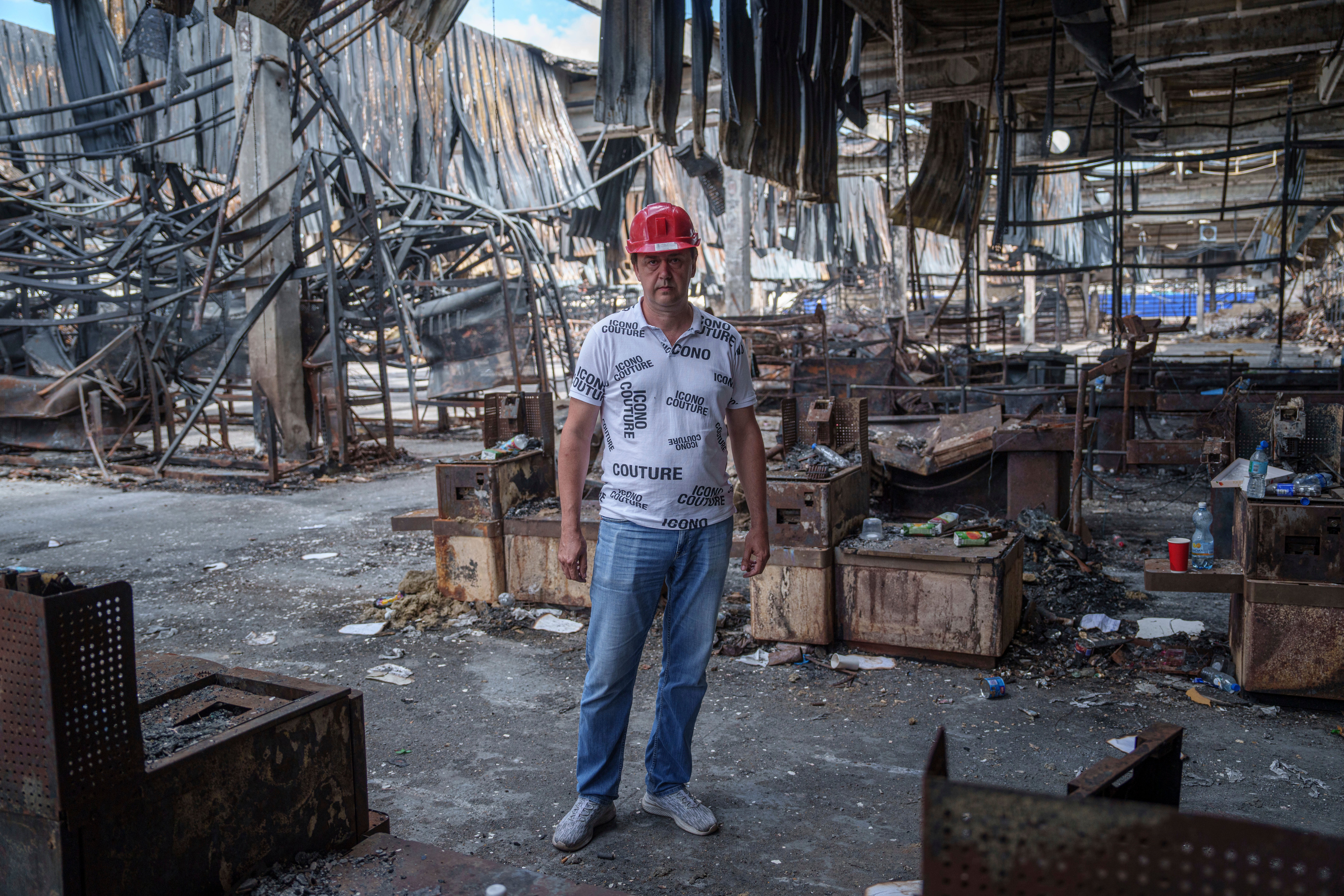
The bombing of the Epicenter in Kharkiv killed 19 people, including two children. In all, glide bombs have hit the city more than 50 times this year, according to Spartak Borysenko of the Kharkiv regional prosecutor’s office.
He showed investigation documents to AP that identified at least eight Russian air bases used to launch the attacks, all within 100 kilometers (60 miles) of Ukraine. He said at least one of the munitions had foreign electronics and was made in May. That date suggests Russia is using the bombs rapidly and that it has successfully circumvented sanctions for dual-use items.
Photos on Russian Telegram channels linked to the military show glide bombs being launched three and four at a time. In one launch of four bombs, the AP traced the aircraft’s location to just outside the Russian city of Belgorod, near the air base now under construction. All four bombs in the photo were headed west — with Vovchansk and Kharkiv in their direct line of fire.
At the end of May, Ukrainian President Volodymyr Zelenskyy said Russia was launching more than 3,000 of the bombs every month, with 3,200 used in May alone.
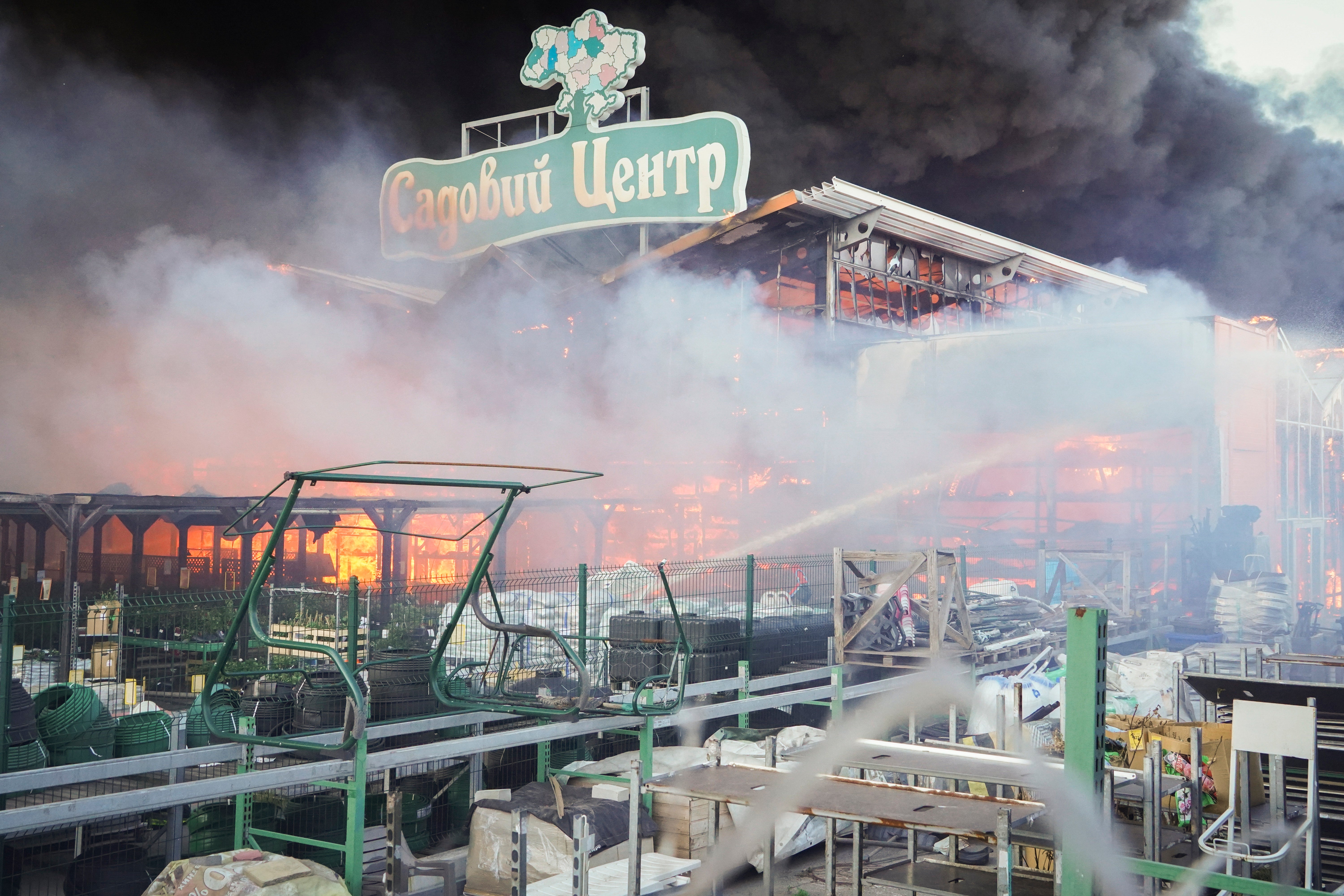
Oleh Katkov, whose military-oriented site Defense Express first traced the launch location, said hitting air bases is key to slowing the pace of the bombings by forcing Russian planes to launch farther away.
“This doesn’t mean they will completely stop their bombings, but it will become more difficult for them,” Katkov said. “They will be able to make fewer sorties per day.”
For months, Ukrainian officials complained bitterly about restrictions on using Western-supplied weapons against targets in Russia, including the airfields that house Russian bombers. The United States and Germany recently authorized some targets in Russia, but many others remain off-limits.
The newest airfield, just outside Belgorod, has a 2,000-meter (-yard) runway, the AP analysis found. Construction began late summer 2023, during the failed Ukrainian counteroffensive.
A Ukrainian intelligence official, who provided information to AP on condition of anonymity, said his government had been closely following the construction, which did not yet appear complete in a photo taken mid-June.
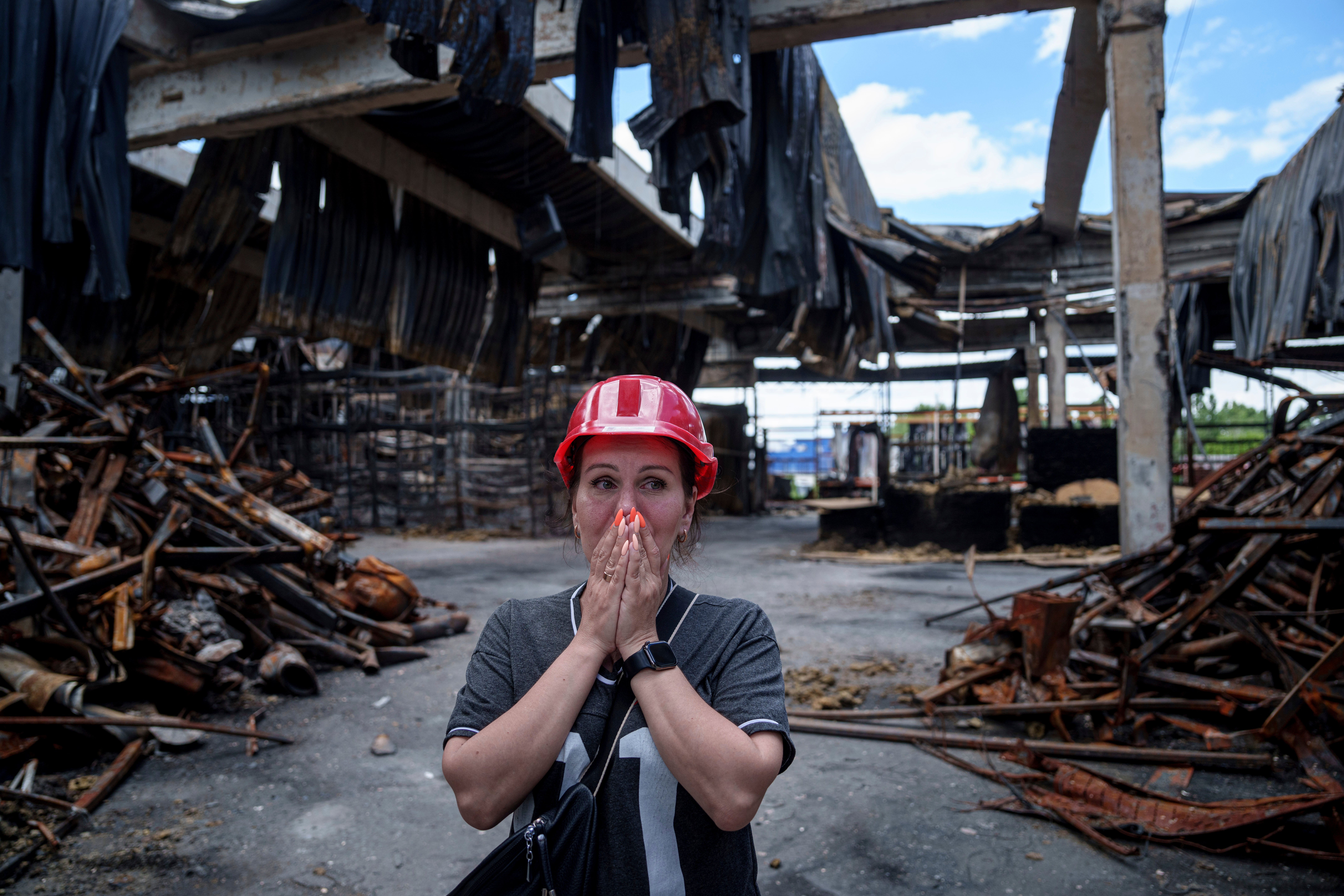
The official also noted that Belarus provides sanctuary for Russian bombers. A map created by the Ukrainian battlefield analysis site DeepState showed 10 airfields in Belarus, including five just across the border from Ukraine.
In all, the DeepState map shows 51 bases used by Russia within 600 kilometers (370 miles) of Ukrainian-controlled territory, including three in occupied eastern Ukraine, six in the illegally annexed peninsula of Crimea, and 32 in Russia.
“The greatest strategic advantage Russia has over Ukraine is its advantage in the sky,” Zelenskyy said last week. “This is missile and bomb terror that helps Russian troops advance on the ground.”
Russia launches up to 100 guided bombs daily, Zelenskyy said. Besides missiles and drones, which Russia already routinely uses for attacks, the bombs cause “an insanely destructive pressure.”
The base material for the glide bombs comes from hundreds of thousands of Soviet-era unguided bombs, which are then retrofitted with retractable fins and guidance systems to carry 500 to 3,000 kilograms (1,100 to 6,600 pounds) of explosives. The upgrade costs around $20,000 per bomb, according to the Center for European Policy Analysis, and the bombs can be launched up to 65 kilometers (40 miles) from their targets — outside the range of Ukraine’s regular air defense systems.
The bombs are similar in concept to the American Joint Direct Attack Munition, or JDAM, missiles, which have had their GPS systems successfully jammed by Russian forces in Ukraine.
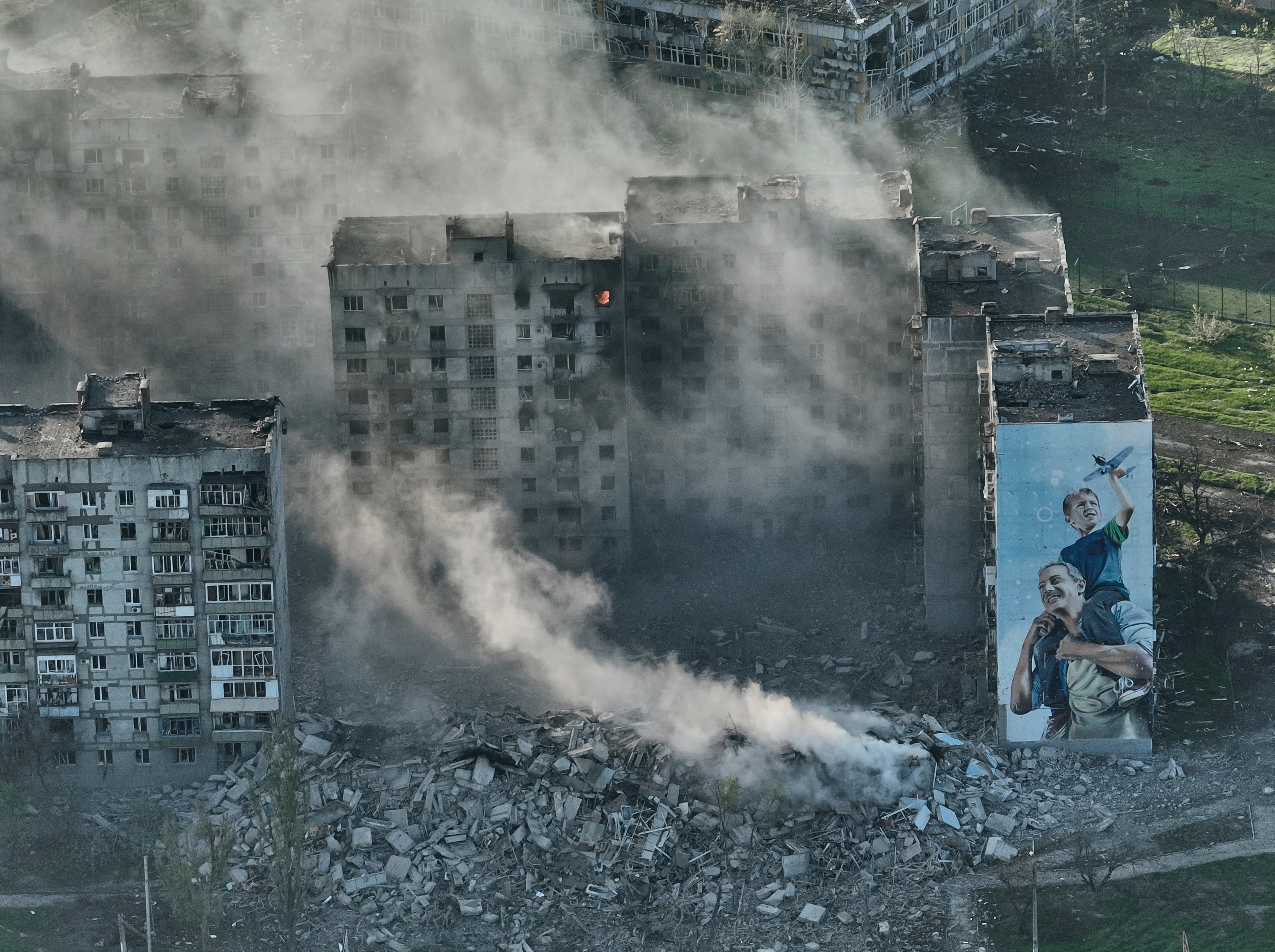
Because Russia does not have the strength to occupy eastern cities such as Kharkiv, bombing is their preferred option, said Nico Lange, an analyst with the Center for European Policy Analysis.
“From their point of view, the strategy seems to be to terrorize the cities enough that people will leave,” Lange said.
Back at the Epicenter home improvement store, surveillance footage taken just before the explosion showed salesperson Nina Korsunova walking across the floor toward the aisle that she was staffing that day. Then there was a blinding flash, and the camera cut out.
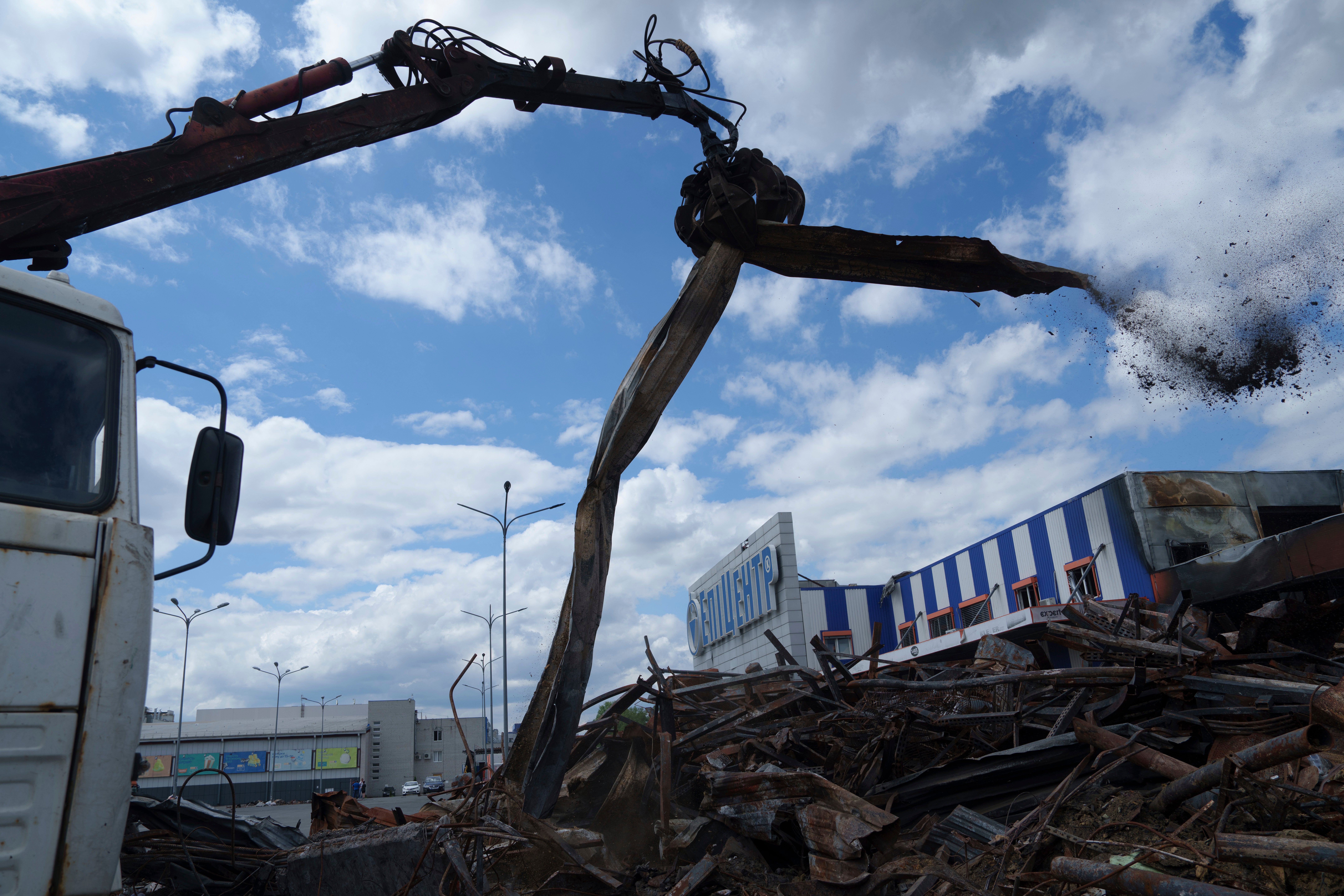
Korsunova curled into the fetal position as a display crashed on top of her. She uncovered her eyes just in time to see the second bomb streak inside. With her eardrums blown out, she could hear nothing and saw not a single sign of life.
“I thought I was alone and that they had abandoned me there. It gave me the strength to climb out,” she said. She crawled over piles of shattered lamps, and cables snarled her legs as she climbed through debris from the electrical supply aisle.
Two weeks later, the skeleton of the building reeked of a disorienting combination of scorched metal and laundry detergent that spilled from melted jugs in the cleaning products aisle.
Neither Korsunova nor the store manager have any plans to leave their hometown.
“It didn’t break me,” she said. “I will remain in Kharkiv. This is my home.”

